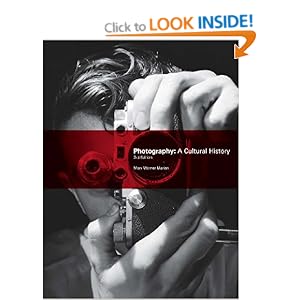I am now at a point where virtually everything that I read is related to photography, why? When I started the course my goal was very simply to become a better photographer, this is still true, however, what kind of photographer, what subject, what specialty. I am not naive enough to think that after a year of art education I can make judgements about where I will take my practice, however, without an understanding of what different genres exist, I cannot even begin to ask that question. As with Science, art is a process of building upon the work that has gone before, adding your own contribution and hoping to step forward. Truly unique breakthroughs or completely new directions are rare, in science this happens once every generation at best, in art possibly even less often. Most good work is simply an extension of existing ideas, treated in a new and refreshing way. Without knowing what has gone before it is not possible to know where to go next.
Equally craft comes from studying the masters and interpreting their work with your own vision, looking at and then repeating previous styles and genres helps to build the skills and vision needed before being able to make a meaningful contribution, if that is even possible. I view myself at present as a sponge, simply wanting to soak up as much knowledge and as many different ideas as I can. At some stage I would then like to sit back and from this sea of information synthesize my own viewpoint, however, that is likely to be some years in the future.
At this stage I have more questions than answers, these are a few solo debates I am currently engaged in:
Black and White versus Colour: Before starting the course I had an active dislike of monochrome images, I did not understand earlier art photography and simply associated B&W with historical inability to use colour meaningfully. Having now been exposed to a very large canon of B&W photographs, I can enjoy and appreciate the rich tonality of a well crafted photograph and understand the application of B&W to specific forms. What I cannot understand, still, is why so many people profess a love of Black and White and use it for virtually every subject. Is it nostalgia? Or a sense that art photography should be in Black and White, something I thought was passed by in the 80's? I look at work by Eggleston, Shore, Parr, Meyerovitz, and others, material that would be diminished by loss of colour. I soon will have to remove colour from my work, to complete Assignment 3 of the current course. I am surprisingly looking forward to it, as I want to get to grips with this obsession and understand it from my own viewpoint.
The Other: So much social documentary is aimed at those outside normal society, the destitute or homeless, photography has turned misery into an art form. This is a prevailing thread in photographic history, I can relate to it, but am not sure if I want to practice it
Film: I grew up with film, but really only became interested in photography with the advent of digital and the merging of photography with information technology. The almost immediate feedback provided by downloading and studying images on a large computer screen has accelerated the development of my skills and given me a degree of control over the medium that I would not otherwise have, however, I find myself being drawn towards film. I have a 35mm body and shot a couple of rolls of slide film, but frankly was disappointed, quality was not great and the experience did not differ greatly from my digital cameras. I am thus thinking around larger format cameras, either 6cmx6cm medium format or even 4"x5" large format. On ebay it is now possible to get complete MF systems for the price of a mid-range digital body, but does this make sense, will it change how I do anything, will it offer any qualitative difference. Still thinking about this one.

No comments:
Post a Comment